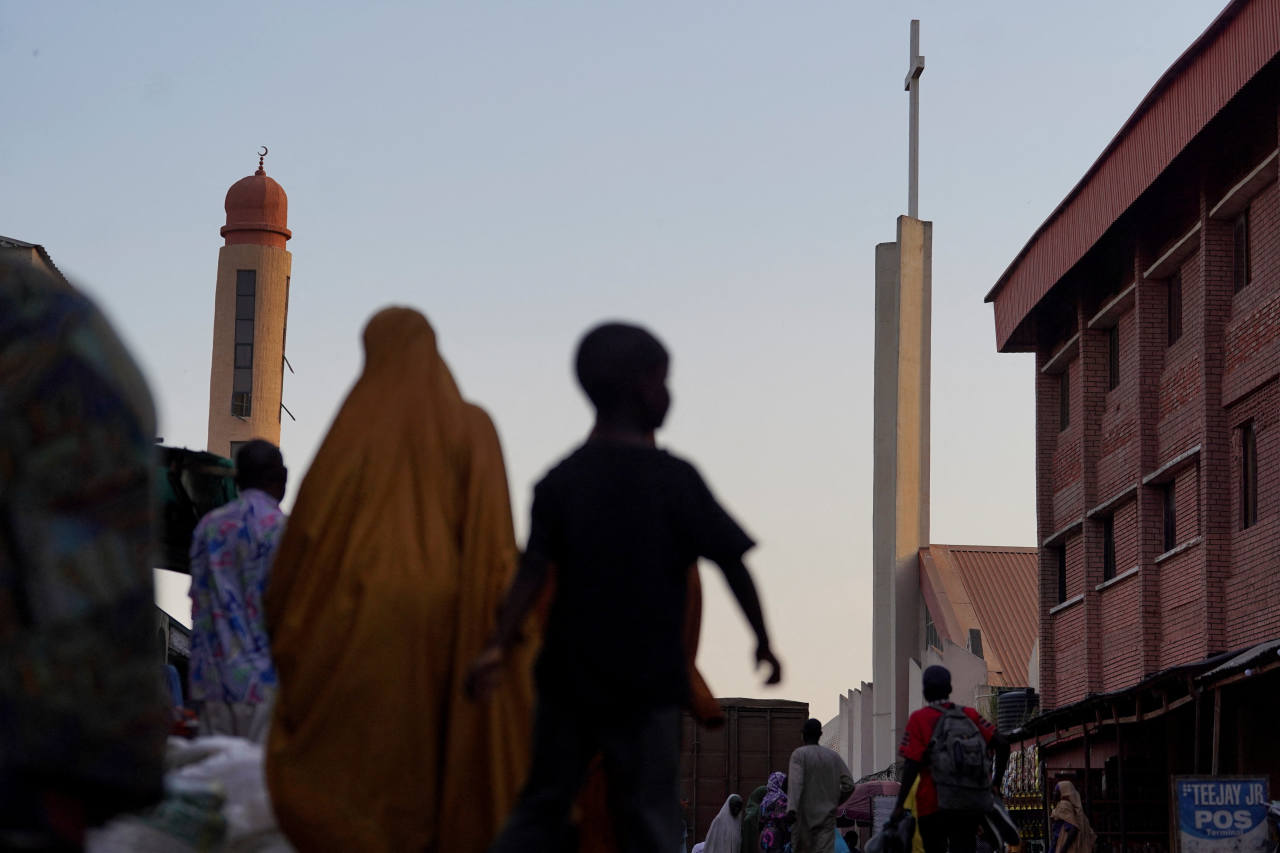
News
November 09, 2025
Inside Trump’s ‘Guns-a-Blazing’ Threat and Nigeria’s Race to Head It Off
The West African country is trying to persuade the president not to insert the U.S. military or cut off aid as largely Muslim cattle herdsmen are accused of killing Christians.
**Nigeria Races to Prevent Escalation as Trump Reportedly Considers Drastic Action Over Herdsmen Violence**
Nigeria is reportedly engaged in a high-stakes diplomatic effort to de-escalate a potentially explosive situation, following reports that President Trump is considering drastic measures, including military intervention or a complete aid cut-off, in response to ongoing violence involving largely Muslim cattle herdsmen and Christian farmers. The West African nation is working to convince the Trump administration that such actions would be counterproductive and detrimental to the already fragile security situation.
The tensions stem from a long-standing conflict over land and resources in Nigeria’s Middle Belt region. This area, which straddles the predominantly Muslim north and Christian south, has seen a surge in violence between nomadic herders and farming communities in recent years. While the conflict is often portrayed along religious lines, experts emphasize that it is fundamentally rooted in economic and environmental pressures, exacerbated by climate change and competition for dwindling resources.
The Nigerian government faces immense pressure to quell the unrest. However, the situation is complex. Accusations of religious persecution have fueled international concern, particularly among conservative groups in the United States. Reports suggest these groups have been actively lobbying the White House to take a stronger stance, potentially influencing President Trump's view of the conflict.
Sources familiar with the matter indicate that the Nigerian government is attempting to demonstrate its commitment to resolving the crisis through peaceful means. This includes strengthening law enforcement in affected areas, promoting dialogue between conflicting communities, and addressing the underlying economic and environmental factors driving the violence. Nigerian officials are also working to highlight the complexities of the situation, emphasizing that the conflict is not solely a religious one and that broad-stroke solutions like military intervention could have unintended and destabilizing consequences.
The prospect of the U.S. military becoming involved or crucial aid being cut off has sparked considerable anxiety within Nigeria. Such moves could further inflame tensions, undermine the government’s authority, and potentially lead to a broader humanitarian crisis. The coming weeks are crucial as Nigeria seeks to navigate this delicate situation and persuade the U.S. to adopt a more nuanced and constructive approach to addressing the challenges in the Middle Belt.
Nigeria is reportedly engaged in a high-stakes diplomatic effort to de-escalate a potentially explosive situation, following reports that President Trump is considering drastic measures, including military intervention or a complete aid cut-off, in response to ongoing violence involving largely Muslim cattle herdsmen and Christian farmers. The West African nation is working to convince the Trump administration that such actions would be counterproductive and detrimental to the already fragile security situation.
The tensions stem from a long-standing conflict over land and resources in Nigeria’s Middle Belt region. This area, which straddles the predominantly Muslim north and Christian south, has seen a surge in violence between nomadic herders and farming communities in recent years. While the conflict is often portrayed along religious lines, experts emphasize that it is fundamentally rooted in economic and environmental pressures, exacerbated by climate change and competition for dwindling resources.
The Nigerian government faces immense pressure to quell the unrest. However, the situation is complex. Accusations of religious persecution have fueled international concern, particularly among conservative groups in the United States. Reports suggest these groups have been actively lobbying the White House to take a stronger stance, potentially influencing President Trump's view of the conflict.
Sources familiar with the matter indicate that the Nigerian government is attempting to demonstrate its commitment to resolving the crisis through peaceful means. This includes strengthening law enforcement in affected areas, promoting dialogue between conflicting communities, and addressing the underlying economic and environmental factors driving the violence. Nigerian officials are also working to highlight the complexities of the situation, emphasizing that the conflict is not solely a religious one and that broad-stroke solutions like military intervention could have unintended and destabilizing consequences.
The prospect of the U.S. military becoming involved or crucial aid being cut off has sparked considerable anxiety within Nigeria. Such moves could further inflame tensions, undermine the government’s authority, and potentially lead to a broader humanitarian crisis. The coming weeks are crucial as Nigeria seeks to navigate this delicate situation and persuade the U.S. to adopt a more nuanced and constructive approach to addressing the challenges in the Middle Belt.
Category:
World